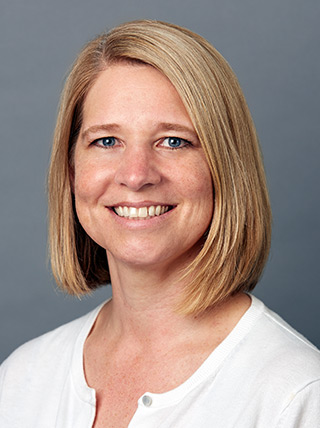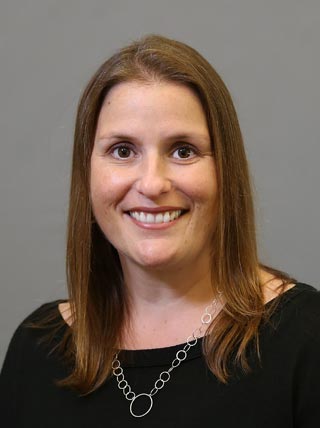Studies reflect interest in genetic testing for hereditary cancer syndromes, particularly for underrepresented minorities and low-income populations
Three newly funded studies at the Kaiser Permanente Center for Health Research (CHR) will supplement a major genetic testing study called CHARM: Cancer Health Assessments Reaching Many. The studies are all funded by the Clinical Sequencing Evidence-generating Research (CSER) consortium, a multi-institutional translational genomics consortium funded by the National Human Genome Research Institute, in collaboration with the National Cancer Institute and the National Institute on Minority Health and Health Disparities.
 Katrina Goddard, PhD
Katrina Goddard, PhD
“When we submitted three supplemental funding requests last May, we were uncertain whether even one of them would get funded. We had no expectation that all three would be awarded,” noted Katrina Goddard, PhD, Co-Principal Investigator of CHARM and a Distinguished Investigator at CHR. “The approval of all of these grants reflects the interest funders have in genetic testing for hereditary cancer syndromes and the work that the CHARM study is doing to reach patients from more diverse backgrounds.”
CHARM is screening healthy adults ages 18-49 in primary care clinics to help identify patients at risk for Hereditary Breast and Ovarian Cancer (HBOC) syndrome and Lynch syndrome—two hereditary cancer syndromes that lead to an increased risk of several types of cancer, including breast, ovarian, colon, and endometrial cancer. The CHARM project offers patients screening for these cancer syndromes. If screening indicates patients are at risk or meet other study criteria, the project offers them additional genetic services, which may include exome sequencing, to further evaluate and assess their risk.
The project is a nearly $11 million, four-year study that seeks to understand what health systems can do to ensure equity of access to genetic testing and counseling services among all patients, including lower income, lower literacy, and minority patients. CHARM is enrolling patients in Portland, Oregon and Denver, Colorado who are diverse in terms of race, ethnicity, income level, primary language, health literacy, and insurance status. So far, more than 400 people, both English-speaking and Spanish-speaking, are enrolled in the study.
CHARM involves several health systems and universities, including Denver Health, Kaiser Permanente Colorado, Kaiser Permanente Northwest, Seattle Children’s Research Institute, Columbia University, the University of California at San Francisco, Dana Farber
Cancer Research Institute, and the University of Washington.
First supplemental study will assess patient-facing tool
CHARM is testing several new approaches to screening for hereditary cancer syndromes. One is a web-based risk-assessment tool that asks patients about their personal and family history and can assess their risk without an in-person visit. Kate Mittendorf, PhD, a CHR Research Associate, will lead a two-year study to analyze and evaluate the effectiveness of the risk assessment tool, which was designed for patients of all literacy levels. Mittendorf will assess how the tool performs, including how easy it is to understand and use, and how long it takes patients to complete.
“This supplemental award is a career development award for Kate,” said Goddard. “The primary goal is to enable professional development activities and assist early career researchers to grow in their skills. Through this supplemental study, they will have the unique opportunity to lead a project independently, particularly an important study which will help us learn if we are using the right tools to help identify patients at risk.” Improving understanding of one’s risk is important because these hereditary syndromes greatly increase a patient’s chance of developing cancer. Diagnosis of one of these syndromes means patients can be monitored and even receive preventive treatments, such as surgery.
Second new study will test decision aid
 Beth Liles, MD
Beth Liles, MD
Although exome sequencing is an effective tool for genetic diagnosis, one barrier to its use has been the need to help doctors understand and adopt this technology. Exome sequencing is more complex than standard genetic testing and its results and methods are more complicated to convey to patients.
The second new study will help overcome this challenge by identifying ways to improve how patients and their doctors make choices about using exome sequencing. Elizabeth Liles, MD, MCR, a Kaiser Permanente Northwest primary care doctor board certified in internal medicine, and a CHR Investigator on the CHARM team, will lead this study.
Liles’ study will test whether a web-based tool focused on patients’ values will help them decide whether or not to receive secondary results of exome sequencing. While the primary goal of the CHARM study is to identify genes signifying increased cancer risk, genetic screening might also identify a risk for other conditions, such as heart disease, which patients may or may not want to know about. “We want to know if helping patients identify their own genetic testing-related values makes them more selective about the results they choose to receive,” said Liles.
Third new study will explore barriers to family cancer information among sexual minorities
 Jessica Ezzell Hunter, PhD
Jessica Ezzell Hunter, PhD
Current methods used to identify patients who should be referred for genetic counseling and testing rely on their knowledge of their family history of cancer, including cancer type and the age of onset in close relatives. When patients don’t know their family cancer history, it becomes difficult to assess their hereditary cancer risk. This could lead to missed opportunities to implement life-saving clinical interventions, such as risk-reducing surgery, as well as to share any hereditary genetic risks that might have been identified in the individual with family members.
Unfortunately, due to increased rates of stigma and intolerance that may lead to strained or estranged family relationships, sexual minority individuals may have limited knowledge of and access to family cancer and other health history information.
The third new study is led by Jessica Ezzell Hunter, PhD, a CHR Investigator on the CHARM team who is a genetic epidemiologist with training in molecular genetics, biostatistics, and neuropsychological outcomes. Dr. Hunter’s study will interview sexual minority individuals to explore their knowledge and experiences, as well as barriers they may have to getting family cancer information that could lead to health disparities for this group.
These new approaches and processes that CHARM is testing could enable health plans to offer genetic screening, testing, and counseling to more patients. The CHARM study hopes to provide a model that can increase appropriate and equitable use of genomic services for all patients in the future.